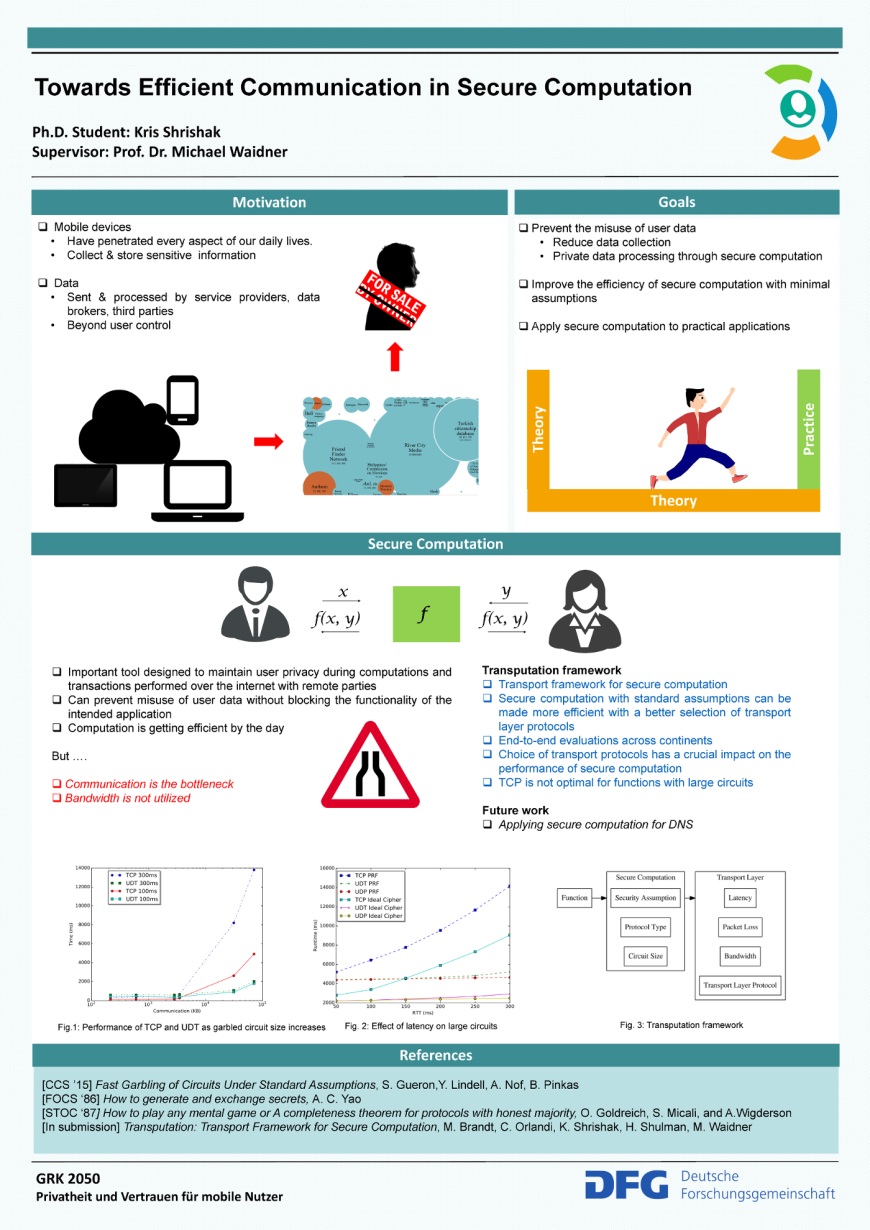- Kris Shrishak -
Secure multiparty computation (MPC) is an important tool designed to maintain user privacy during computations and transactions performed over the internet with remote parties. Concisely, MPC allows parties to perform a computation and obtain the output without revealing their inputs to the other party. As mobile devices penetrate every aspect of our daily lives, utilizing MPC tools for mobile applications is critical for maintaining privacy of users in everyday life. Currently, large amounts of personal information about users is acquired through mobile applications and stored in cloud servers for the purpose of providing service to the users. Often sensitive information is also sold to third parties for profit. In addition, devices such as activity trackers are synced to mobile phones and send personal data to servers for the purpose of health monitoring and sports training. Misuse of user data, especially in the context of medical transactions, can be prevented by using MPC without blocking the functionality of the intended application. In our project, we aim to improve the efficiency of MPC both cryptographically and through non-cryptographic aspects when cryptographic protocols reach their theoretical optimum. In the last decade, the performances of secure two-party computation (2PC) protocols based on garbled circuits have greatly improved and, thanks also to hardware support for cryptographic operations, it is now widely believed that the main bottleneck for 2PC is communication, not computation. In particular, network bandwidth is presumed to be the main hindrance. We show that the usage of network bandwidth rather than the bandwidth itself hinders the efficiency of 2PC protocols based on garbled circuits. We design and implement the first transport layer framework for secure computation. The framework supports a number of transport layer protocols, and selects a suitable one for the given computation task, depending on the circuit size of the function to be securely evaluated and network conditions. The goal of our framework is to help developers of 2PC protocol to choose, replace and use the appropriate transport layer protocol for the given application. Further, we will follow up on efficient communication for 2PC by focusing on MPC and applications of MPC such as privacy-preserving analytics for social media.




